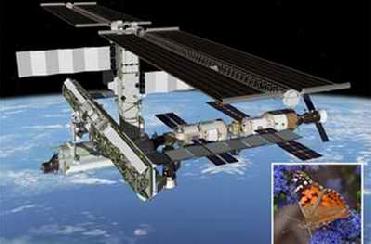
A University of Colorado at Boulder K-12 educational payload toting butterflies and spiders is slated to launch to the International Space Station aboard NASA's space shuttle Endeavour on Nov. 14. Image courtesy NASA and www.pdphoto.org
WASHINGTON (BNS): Seven astronauts flying aboard the space shuttle Endeavour on Friday will have the company of another living species. For the first time web-spinning spiders and wannabe butterflies will be on the space shuttle as part of the University of Colorado, Boulder, Butterfly and Spider K-12 Experiments.
The two educational experiments flying on Endeavour were designed and built at CU-Boulder�s BioServe Space Technologies, said BioServe Director Louis Stodieck, principal investigator on the project. �One will be used to compare how �space� spiders differ from Earth spiders in web spinning and feeding. The second experiment will chart the life cycle of butterflies in the low gravity of space -- from larvae to pupa to butterfly to egg -- and compare it with that of earthbound butterflies,� Stodieck said.
The experiments of spider and butterflies will be closely monitored by hundreds of K-12 students from Colorado's Front Range after space shuttle Endeavour blasts off from Florida for the International Space Station on Friday.
Speaking about the classes during the experiments, BioServe Payload Mission Manager Stefanie Countryman said that the objective of the first experiment was to achieve a full life cycle for painted lady butterflies in the microgravity of space. It will then be compared to a life cycle of the butterfly in normal, Earth-bound conditions in the classrooms, she said.
�The experiments in Space and Earth will begin with four-day-old larvae and include provisions of nectar for butterflies emerging from the pupa stage into adulthood,� Countryman said.
Explaining about the second objective, Countryman said it is to compare the ability of an orb-weaving spider to spin webs and catch food in the nearly weightless environment of space and compare the same to orb-weaving spiders performing those tasks on Earth. �The spiders will be provided with live fruit flies and water to sustain them during the experiments,� she said.
Speaking about the educational programme, Stodieck said that this would be the third shuttle flight of BioServe's K-12 educational programme known as CSI, which �brings actual space flight experiments into the K-12 classroom.� Stodieck also happens to be a faculty member in CU-Boulder's aerospace engineering sciences department, home of BioServe. �This programme is an excellent example of using a national asset like the International Space Station to inspire K-12 students in science, technology, engineering and math,� Stodieck said.
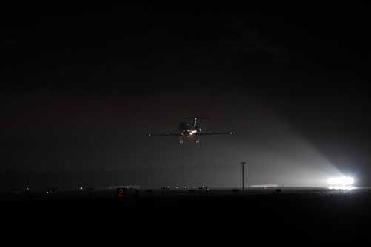 Previous Article
Previous Article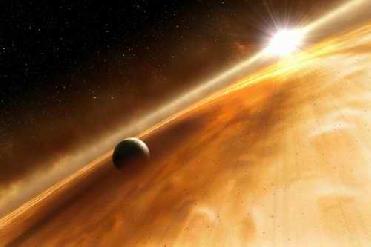 Next Article
Next Article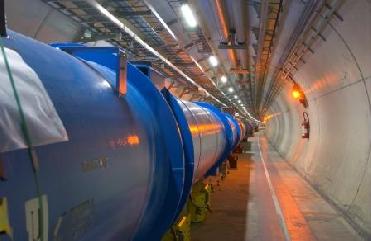
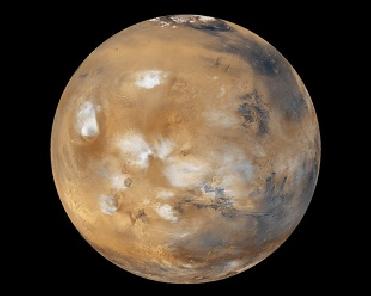
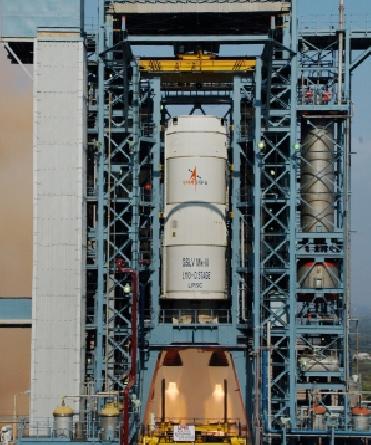










The Indian Air Force, in its flight trials evaluation report submitted before the Defence Ministry l..
view articleAn insight into the Medium Multi-Role Combat Aircraft competition...
view articleSky enthusiasts can now spot the International Space Station (ISS) commanded by Indian-American astr..
view article